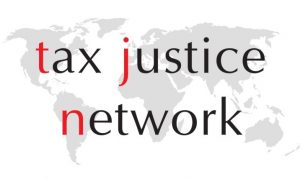 Introduction
Introduction
The Tax Justice Network is an independent international network launched in 2003 (see our history here). Our core mission is to ‘change the weather’ on a wide range of issues related to tax, tax havens and financial globalisation. We push for systemic change.
We could very loosely be described as a fast, flexible, expert-led, activist think tank. We are not politically aligned.
How we work
Our operating model has been highly successful, as others attest.
We have a small core of highly motivated staff, surrounded by a range of academics, professionals and other experts in a range of different fields, who mostly provide pro bono work. Campaigning is carried out most directly through our separate sister organisation, the Global Alliance for Tax Justice (GATJ), which was spun off from TJN in 2013, though we have built and maintain links with many organisations and people around the world.
We draw on our collective expertise to research, design and push original new agenda-setting positions. We seek to be ‘beserkers,’ opening up new spaces for others to enter. We challenge conventional wisdom, we relish lively debate, and our work gets media attention. We can quickly take positions on current news and issues, without needing long stakeholder consultation.
In each area of our work we seek to incubate new projects while building new communities around the issues, with a view to eventually ‘spinning off’ the issue for others to take the lead, freeing us to move on to new frontiers. We take a ‘let 1,000 flowers bloom’ approach, seeking to control the activities of others as little as possible; instead we seek to influence and encourage people by playing the role of think tank, incubator and enabler. (Read more about our history here; see also this assessment of our role and tactics by Leonard Seabrooke and Duncan Wigan of Copenhagen Business School.)
For example
- Country by country reporting. An idea originally pushed by the non-aligned movement in the 1960s, and launched as a civil society proposal by TJN in 2003, this idea, most actively developed by Richard Murphy, is now taking the world by storm. Others are now ably pushing this forwards. See here. (Similarly for Automatic Information Exchange, also now going mainstream with the backing of G20 leaders.)
- TJN-Africa. Originally launched by TJN in Nairobi, this now has its own independent organisational structure and funding base. Similarly with other TJN groups. (TJNs also exist in Latin America, Canada, Australia, Europe, USA, with fledgling groups emerging in Asia.)
- Global Alliance for Tax Justice. We used to have a core campaigning element, but we decided to spin off the GATJ as part of our long-term strategy to focus on research and advocacy. See an example of its remarkable influence here.
- Finance Uncovered. Initiated by TJN, a now self-standing and highly successful financial journalism training programme: see here, and separate testimonials).
- Fair Tax Mark. Now a stand-alone separate project
Human rights and inequalities lie at the heart of our work, which covers a range of areas from financial secrecy and corporate tax havenry, to assessments of the revenue losses from international tax avoidance and evasion, and the ‘competitiveness’ agenda and the race to the bottom (see the “Topics” section in the main banner menu above.)
Tax justice: a world view
We have found that our multiple interventions and positions in this diverse range of fields enjoy a very high degree of internal coherence: this has over time created a fully fledged ‘tax justice’ world view which essentially forms a new prism for understanding financial globalisation in all its forms, and for challenging conventional wisdom. (The influential bestseller Treasure Islands, a TJN-supported project, contains the most comprehensive summary of this world view.)
A constraint, and a plea
Our operating model is not conducive to easy fundraising. Our radical and original positions directly challenge many of the world’s most powerful vested interests. What is more, many donors prefer to give to things with concrete, direct result. Tax is never tied directly to the good things like good schools, hospitals that people care about: so it’s hard to reach out to these donors. And our core mission to ‘change the global conversation,’ while highly successful, is also hard to measure or to show how effective we’ve been, in a field that is (happily) becoming increasingly crowded. (Our testimonials are perhaps our most concrete measure of broad-based success.)
Now here’s the plea: please contribute to us if you can. Our donations page is here.

